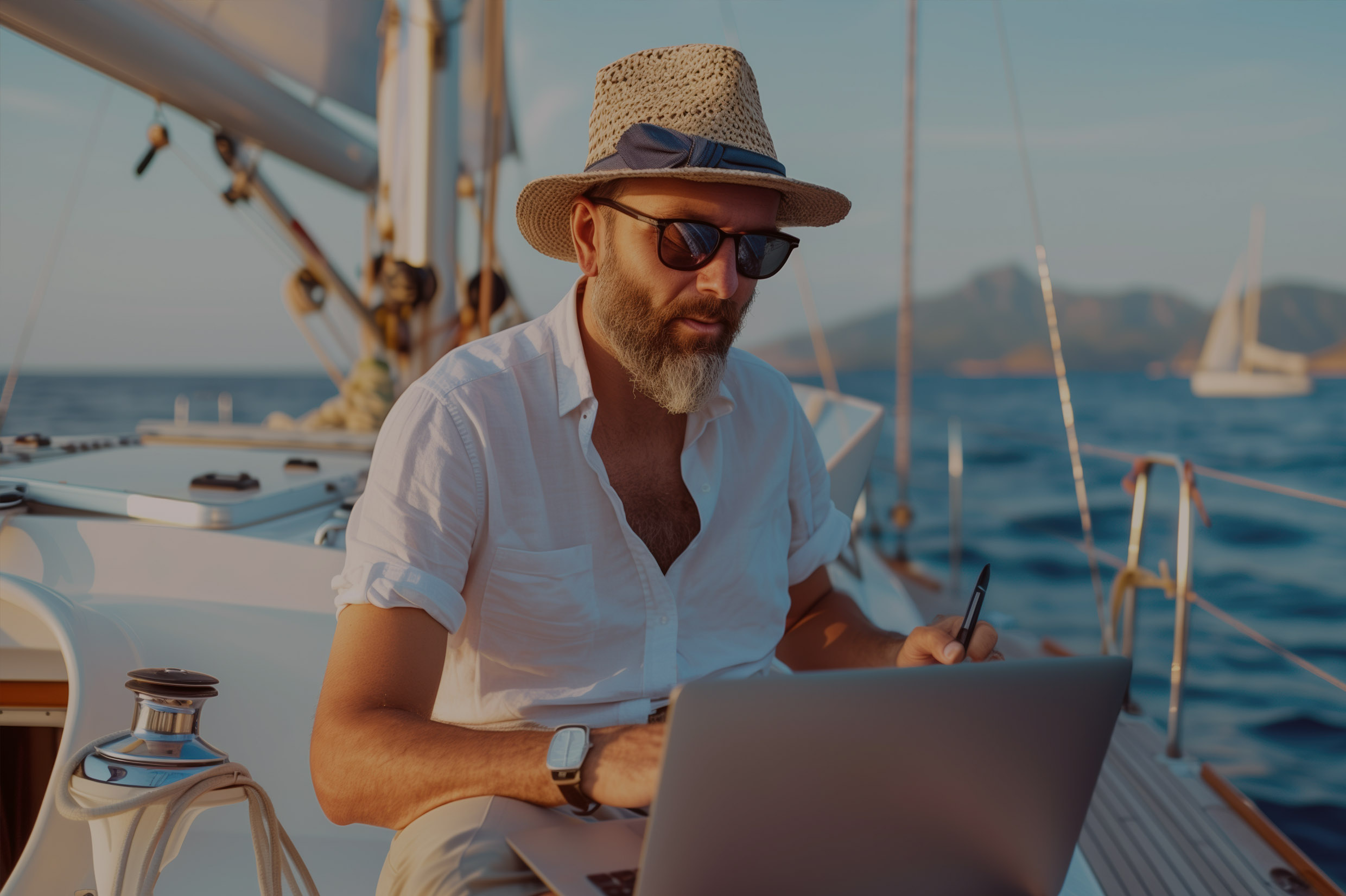
Is Bleisure Travel the Way Forward?
December 20, 2024

Tribe: An All Day Concept Serving Breakfast, Brunch, Lunch, Afternoon Tea, Dinner & More!
December 20, 2024
Are Hotels Hostage to Online Travel Agencies?
December 20, 2024Take business travel, add leisure travel and you get bleisure travel. This is a combination which is growing in popularity as work-life boundaries blur and as more and more take the plunge into nomad work styles.
The world has changed, especially since the pandemic, and employers and employees have changed their attitude to working only from one place and one office. Is Bleisure a travel phenomenon which will grow exponentially or just fade away?
Should we, in our little island which is facing huge growth and increasing numbers of tourists, look at the trend and try to incorporate it into our incoming tourism offering? This and more is what some experts in travel were asked. Their answers were intriguing, and the prospects of new horizons in travel experiences combined with work are exciting. However, as with all trends, we either embrace them and try to develop them to suit our country’s characteristics, or we let the initiative pass to others in adopting new approaches to travel, not just today but in the future.
We not only need to adapt to new realities but we also need to create new avenues, new ways, otherwise we risk becoming stale and being overlooked.
What measures can be taken or are being taken to entice more business travellers to stay on for leisure after concluding their work in Malta or Gozo?
Chris Fenech, Managing Director of Venues Box, says: “Bleisure is an important part of the way forward. As schedules get busier, a larger percentage of the working population is getting to year end with significant portions of unused leave, so in this respect both employers as well as the hospitality industry could be staring at a huge opportunity.
“By agreeing negotiated rates for extended stays, companies can better organise their travel budgets and achieve a balance between employee satisfaction and cost-effectiveness,” remarks Fenech.
Douglas Barbaro Sant isn’t just a man who knows the travel trade well but he also feels he himself is a true Bleisure traveller. The nature of his job centres round travel and he loves travelling, so he regularly combines work and leisure. He says: “I wouldn’t refer to Bleisure as a phenomenon, as it is more of a natural curiosity that people have about a destination they visit for work. This has always been around but now there has been a growth of Bleisure travel because remote working and flexible schedules are more common. The boundaries between business commitments and personal enjoyment are becoming increasingly blurred.”
Seasoned tourism man Tony Zahra does think that Bleisure has grown post-Covid but he does not see it growing into a major part of our tourism sector. According to Zahra, the segment will increase not more than perhaps low- to mid-single digit percentages. Significant emphasis is already being put on MICE – meetings, incentives, conferences and events – and beyond this Zahra thinks that Bleisure, at least in relation to Malta, will have a negligible impact on our tourism.
Chris Fenech, on the other hand, believes that this could be a lucrative addition to our tourism mix. He says that ways need to be found to increase this mode of travel: “We need to look at ways of targeting these travellers for a stay extension (easier as they are already in Malta) or else for a repeat visit. If they are given a simplified way to turn their business trip into an extended leisure trip, the conversion rate can be extremely high and this sector can significantly boost numbers, especially in the off-season and mid-week.”
Douglas Barbaro Sant agrees that this segment should be further developed. He believes that although an effort was made to attract the digital nomad trend to grow, not enough was achieved. “After all,” Barbaro Sant says, “ the trend in Bleisure with the younger generations – millennials and Gen Z – is growing. Unless we see a huge change in present work routines younger people will continue combining work and travel more.”
More incentives, more personalised travel extension options and more feedback from the existing Bleisure travellers are ways of increasing this segment according to the travel experts. Or at least of finding ways to optimise the segment.
Barbaro Sant goes on: “Bleisure travel is not just a fleeting trend but a significant shift in how professionals approach work and travel. Incorporating this into the islands’ tourism strategy can lead to enhanced visitor experiences, increased revenue, and greater economic impact for the region. By recognizing and adapting to this trend, local stakeholders can develop innovative industry offerings that cater to the evolving needs of modern travellers.”
The numbers coming to Malta and Gozo are not just healthy but approaching realms of worrying growth. So all ideas – sometimes even seemingly impossible ones – which could add value to our touristic offering should be examined. If lucrative, they should be adapted to our needs. This could be a way, even if a small way, of reducing the need for exponential growth in our numbers.
Bleisure could boost our travel offering in Malta by adding growth without adding numbers. Bleisure, with its attendant emphasis on work and life balance, appeals mainly to the younger generation. These will be tomorrow’s biggest travellers. Shouldn’t more be done to entice the young to come to Malta, stay longer and enjoy our food, drink, hospitality, heritage and all things local?

Victor Calleja
Victor Calleja is a writer and columnist for Malta’s leading newspaper. For a number of years he edited Insider, a gastronomy and hospitality magazine. He also edited Archetype, centred around urban living. Victor loves anything connected to words, food, travel, and storytelling.
vc@victorcalleja.com
Click here to see Horeca Issue 18 online



